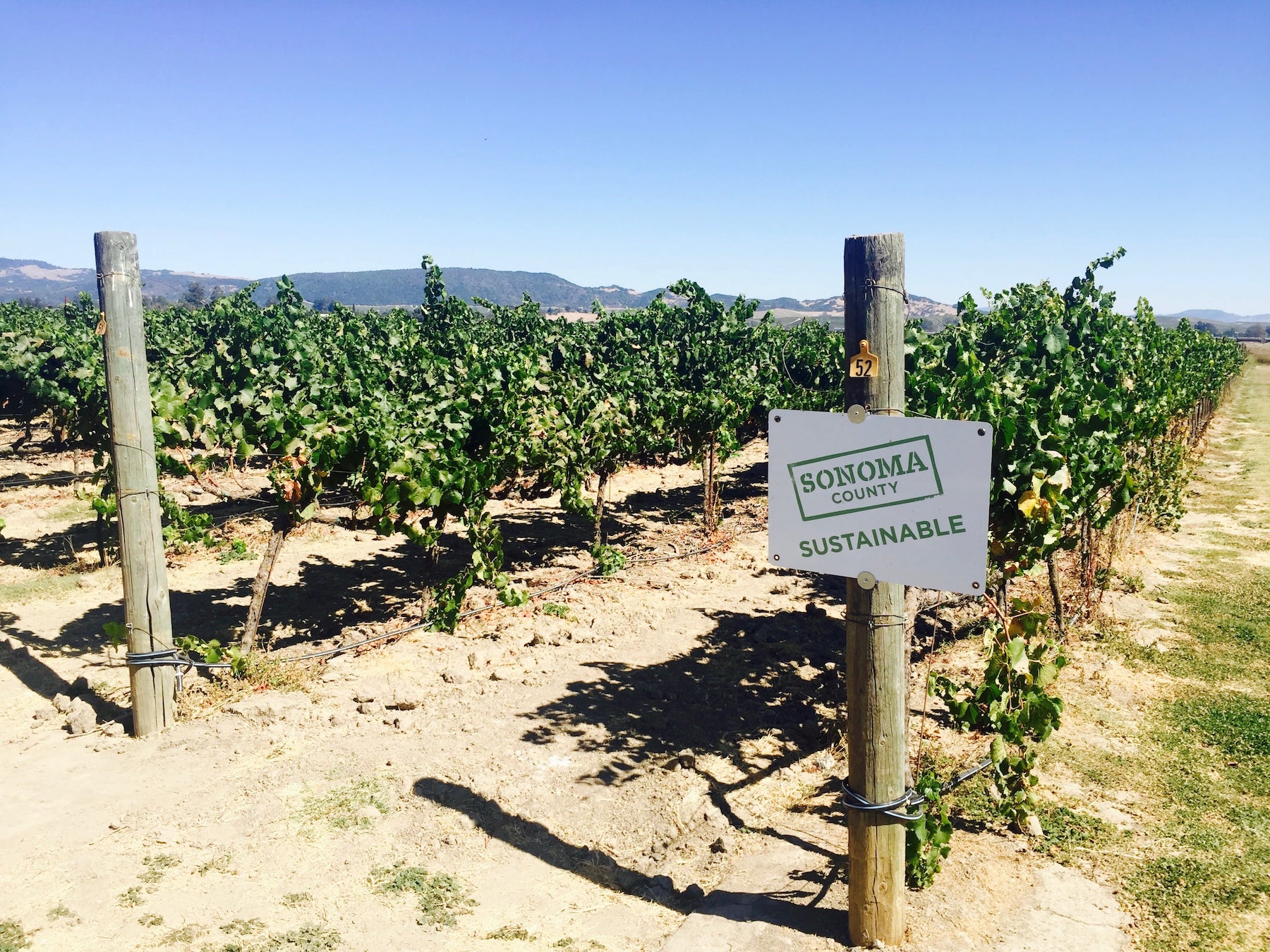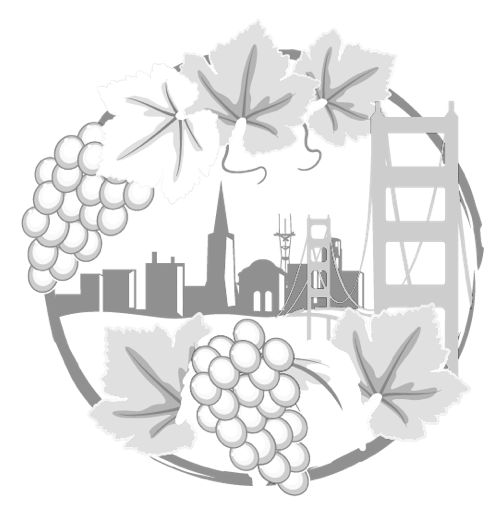The commitments and processes that Napa and Sonoma wineries have put in place to ensure sustainable, green vineyards are unlike any other region in the world. This isn’t hyperbole—it’s based on vision and action up and down both counties at more than 1,000 wineries.
To earn the Napa Green Winery certification, wineries must adhere to more than 100 standards. These include:
- Saving energy and increasing energy efficiency
- Conserving water and increasing water use efficiency
- Preventing waste through recycling, composting, and environmentally preferable purchasing
- Reducing greenhouse gas emissions and the winery’s carbon footprint
- Caring for employees, building engagement around sustainability and being good neighbors
Sonoma County Winegrowers raised the sustainability bar in 2014 when its 1,800 members committed to becoming the nation’s first 100% certified sustainable wine region. In 2019, Sonoma County achieved a remarkable feat when 99% of its vineyards earned certification.
Sonoma County also launched its “Sustainably Farmed Grapes” logo for wineries to use on their bottles as a way to reinforce their commitment to sustainable wine growing and serve as a badge of honor for those who live up to the lofty notoriety.
One of the leaders in sustainable wine growing is Benziger Family Winery in Glen Ellen, Sonoma County. It’s certified sustainable, certified organic and certified biodynamic. Benziger’s certified-sustainable vineyard program is one of the most comprehensive in the country and it is one of the few Demeter-certified biodynamic vineyards in North America. The winery offers a popular tram tour that explores the property and discusses biodynamic farming.
According to its website, Benziger implements the following strategies to protect the land and enhance the flavors of its wines:
“Instead of bagged fertilizer, weed killer, and pesticides, we rely on composting, natural predator-prey relationships, cover crops, and the animals that live on our estate to keep the vineyard healthy and balanced. There is no silver bullet in biodynamic wine growing. When you eliminate all the artificial crutches, you learn to trust your instincts and to trust nature’s ability and capacity to make a great wine.”
Wineries on Sustainability
Read what other wineries have to say about their green practices and commitments to sustainable wine growing:
“As stewards of the land for five generations, we believe sustainable farming results in the production of higher quality wines and ensures the viability of our estate for generations to come. We are committed to a holistic wine-growing approach: nurturing the soil, respecting the native ecosystems on our property, employing dry farming practices, creek restoration, public education, and always working to reduce our environmental impact.”
—Kunde Family Winery, Kenwood (Sonoma County)
“The Nicholson Ranch mantra is holistic, embracing all aspects of the vine’s health and development. Quality starts in the vineyard. All vineyard work is done by hand to bring out the unique and intrinsic character of each individual variety. We do not use synthetic chemicals in the vineyard eschewing the use of weed killers and other chemicals. We practice dry farming and deficit irrigation to produce intensely flavored grapes. The resulting wines stimulate the senses, warm the heart and evoke a feeling of well-being.”
—Nicholson Ranch Winery, Sonoma
“Bouchaine was the first Fish Friendly Certified vineyard in Napa Valley and we also hold Napa Green Certification. We live and breathe grapes and wine—but we also live on this dirt, breathe this air and drink this water. We are dedicated to leaving a gentle imprint so that this land can be enjoyed for generations.”
—Bouchaine Vineyards, Napa
“Our rooftop solar array collects energy from the sun, offsetting roughly 80% of our energy bill. We recycle all winemaking, bottling, and winery materials and adhere to a strict purchasing policy for all items used at the winery and in the vineyard. This includes but, is certainly not limited to purchasing glass that is made from recycled goods, ordering paper products that exceed 30% post-consumer waste and the investment in new technology, like high pressure-flow washers, that reduced our water use by half.”
—St. Supery Estate Vineyards & Winery, Rutherford (Napa County)
“With a guiding philosophy of environmental responsibility and our commitment to preserving our special spot atop Howell Mountain, we made it a priority that our winery construction and operation would reflect these important values. It was with this goal in mind that we hired architect Juan Carlos Fernandez to design Napa Valley’s first LEED (Leadership in Energy and Environmental Design) Gold Certified estate winery. The LEED program is governed by the United States Green Business Council and their measurement for recognition is based off five key areas of human and environmental health: sustainable site development, water savings, energy efficiency, material selection, and indoor environmental quality.”
—Cade Estate Winery, Angwin (Napa County)
Our Commitment
Green Dream Tours has been committed to sustainable tourism since we opened in 2008. “Green” is in our name for a reason. As a carbon-neutral small business, we purchase carbon offsets through ClimateCare, which supports reforestation and other projects that help eliminate carbon from the environment. We also recycle, use recycled paper and maintain virtual offices to reduce our footprint. We are happy to arrange a custom sustainable wine education tour for you.


